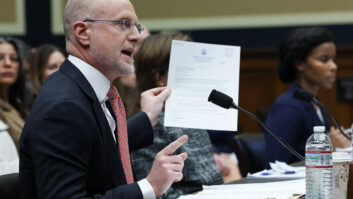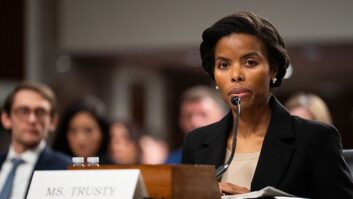WASHINGTON — A pair of Republican senators have asked the FCC to resolve interference issues with TV white spaces use by unlicensed devices, come up with final guidance, and allow for the expansion of TVWS use.
They say the technology is key to closing the rural broadband divide because it is an affordable connectivity answer for rural and tribal communities.
That came in a letter to FCC Chairman Ajit Pai from Sens. Steve Daines (R-Mont.) and Ron Johnson (R-Miss.).
Specifically, they want the FCC to finalize its reconsideration proceeding and its database accuracy proceeding so that broadband providers can invest in rural connectivity.
Microsoft has been a key driver of the white spaces rural broadband effort.
Broadcasters have issues with how the database administrators are handling the interference issue, and while the senators said they support “mitigating the potential for harmful interference” with TV stations, broadcasters want the FCC to ensure that harmful interference does not happen, period.
The FCC, in authorizing white spaces use, requires devices to include “a geo-location capability and the capability to access a database that identifies incumbent uses entitled to interference protection, including, for example, full power and low power TV stations.”
he National Association of Broadcasters has pushed back on the use of those so-called “white spaces,” concerned about interference to the TV stations already being repacked into smaller space thanks to the incentive auction, which freed up licensed spectrum for broadband. “We want rural broadband,” NAB president Gordon Smith told C-SPAN in an interview last last year, pointing out that the new ATSC 3.0 standard would allow broadcasters to be a broadband player, too, but added that he did not want that at the price of doing something “too early.”







